
The incidence and severity of AEs with eryaspase/chemotherapy was generally consistent with previous reports of chemotherapy alone in advanced PDAC.

Your AI-Trained Oncology Knowledge Connection!


The incidence and severity of AEs with eryaspase/chemotherapy was generally consistent with previous reports of chemotherapy alone in advanced PDAC.
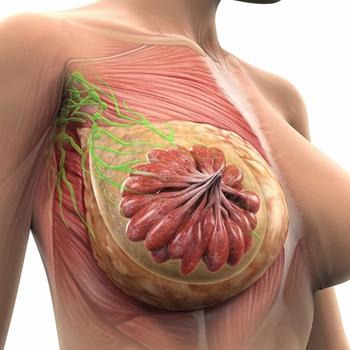
“HER2CLIMB-05 has demonstrated that the addition of tucatinib to HP represents an enhanced frontline maintenance therapy option for patients with HER2-positive metastatic breast cancer,” said Erika Hamilton, MD.

Experts discussed how treatment should be sequenced for patients with small cell lung cancer who have brain metastases, highlighting recent clinical trial advancements and safety considerations.

“Compared with pivotal trials, epcoritamab and glofitamab continue to be applied in a broad population of patients with high-risk large B-cell lymphoma,” said Taylor R. Brooks, MD.
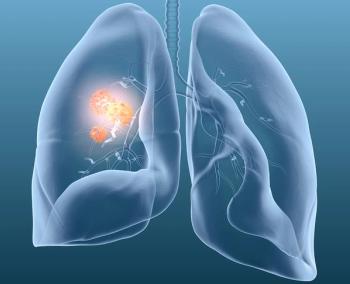
Patients with SCLC who received ociperlimab and tislelizumab plus cCRT achieved a median PFS of 12.6 months compared with 9.5 months with cCRT alone.
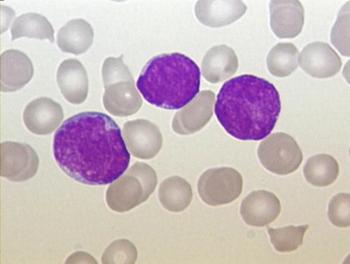
Zanubrutinib led to a 72% reduction in the risk of disease progression or death vs bendamustine/rituximab in this CLL/SLL population.
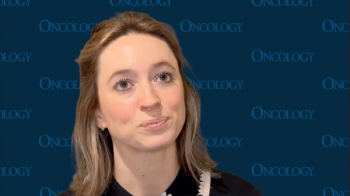
Although a greater risk of CNS relapse may emerge with immunotherapy-based backbones, toxicities associated with chemotherapy are avoided.

Current FDA expectations may allow patients to return to their community physicians at 2 weeks after administration of anitocabtagene autoleucel.
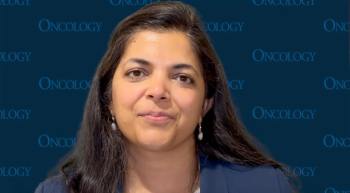
Treatment with CAR T-cell therapy for LBCL, like liso-cel, can impact QOL based on restrictions made on the label.

The primary end point of PFS was not statistically significant with sacituzumab govitecan vs chemotherapy as first-line treatment in HR+/HER2– metastatic breast cancer.

Most CRS events were low grade with elranatamab plus daratumumab and lenalidomide without prophylactic tocilizumab in patients with multiple myeloma.

Giredestrant’s safety in the lidERA BC trial was consistent with its known profile, with a lower discontinuation rate vs SOC endocrine therapy.

Data from the phase 1b MonumenTAL-2 study support continued investigation of talquetamab/pomalidomide in the phase 3 MonumenTAL-6 trial.

Belantamab mafodotin plus pomalidomide and dexamethasone led to a median PFS of 32.6 months in patients with relapsed/refractory multiple myeloma.

Axillary dissection was more likely to be omitted among patients in the ALTERNATE trial when there was one positive sentinel node compared with 2 or more.

Higher ECOG performance statuses and metastatic burden predicted poorer outcomes with frontline adebrelimab for those with extensive-stage SCLC.

Experts discuss the proper placement of Dato-DXd in the treatment of EGFR-mutated non–small cell lung cancer, comparing it with other potential treatments.

Data from the SEQUOIA trial support the use of zanubrutinib/venetoclax in CLL or SLL regardless of del(17p)/TP53 mutation or IGHV mutational status.

Of the 4 patients with relapsed/refractory multiple myeloma who received KLN-1010, 1 complete response and 3 partial responses were achieved at varying levels of MRD sensitivity.

Prior bendamustine exposure correlated with worse complete response rates with axi-cel among those with relapsed/refractory follicular lymphoma.

The 48-month OS rate for the TRANSFORM plus long-term follow-up study was 61.5% for patients with R/R LBCL.

The rate of 35% reduction in spleen volume or higher was higher pelabresib/ruxolitinib vs ruxolitinib alone in the MANIFEST-2 trial.

Phase 2 data support further evaluation of frontline BCMA/CD3 bispecific antibody combinations in phase 3 trials.

Based on its mechanism of action, anito-cel may cause fewer instances of cytokine release syndrome and delayed toxicities vs other therapies.

After a median follow-up of 3.9 months, AZD0120 elicited an overall response rate of 96% among 23 patients with relapsed/refractory multiple myeloma.

Grade 3 immune-mediated AEs were observed in 11 patients with extensive-stage small cell lung cancer, which included 2 instances of pneumonitis.
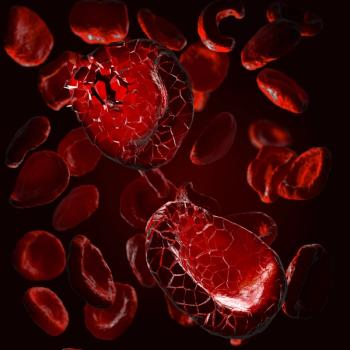
The 3-year event-free survival was 88.9% and 30.0% in patients with high-risk LBCL who did and did not achieve a CR at 6 months, respectively.
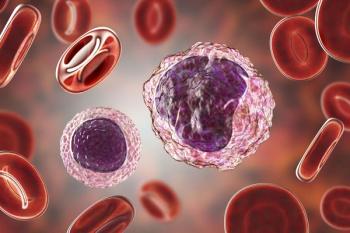
Data showed no significant differences in the incidence of CRS and ICANS with the use prophylactic dexamethasone in a retrospective review.

Patients with squamous NSCLC who received ivonescimab plus chemotherapy as first-line treatment had delayed deterioration in global health status.

Teclistamab plus subcutaneous daratumumab yielded significant improvement in efficacy for patients with R/R multiple myeloma.